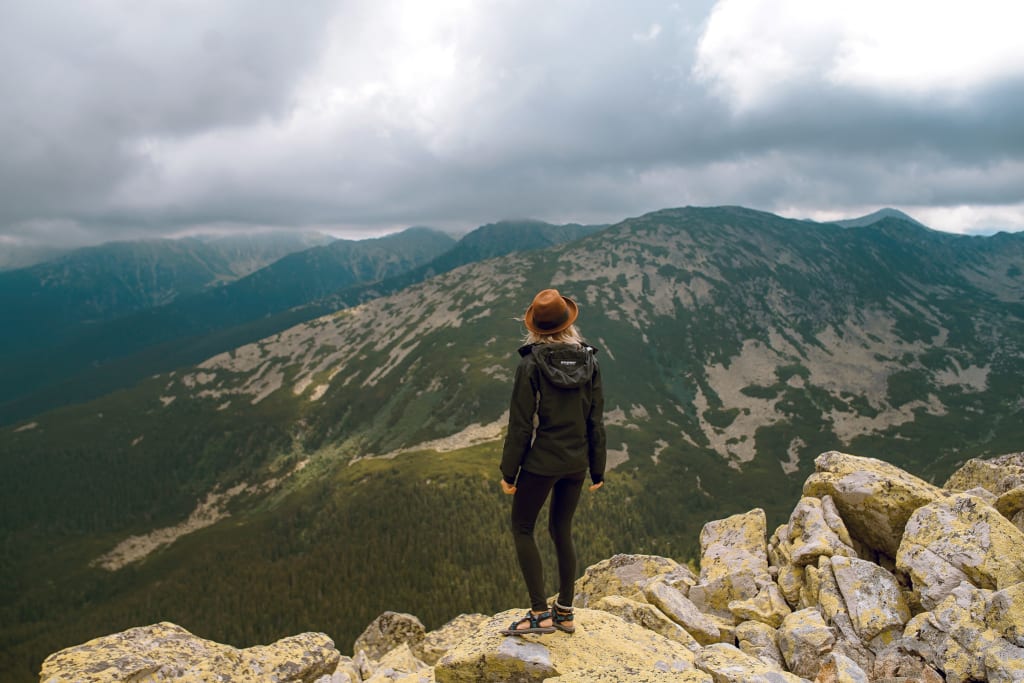
- How about winning a flight ticket worth up to US$500?
- Become a member by January 31st and get a chance to win!
How to add travel to your resume. Including tips like where to put travel on your resume, which skills to emphasize, and how to effectively list Worldpackers experiences on your resume.
9min

With the competitive and intense atmosphere that sometimes accompanies finding a job in this day and age, young people can feel an insane amount of pressure while job-hunting. We want to create the perfect resume, nail the perfect interview and make the perfect impression on potential employers.
Some people may think that traveling is just a hobby, and therefore not a useful credential to include on a resume. But depending on the type of travel you have done, it may just be a special addition to an otherwise ordinary resume.
Traveling is one of the bravest, hardest and most eye-opening things a young person can do.
Research now shows what wanderlusters have known all along — traveling changes you for the better. Especially if you travel using work exchange experiences through Worldpackers, you can also gain international work experience, which always looks good on a resume.
Do you like? Read more about volunteer experience: TOP 5 Reasons why you should volunteer abroad
Employers often look for people that are adaptable, well-rounded and confident. If traveling has made you more open-minded and helped shape you into a better person, chances are that will show in your future career.
So don't be afraid to add travel to your resume. Rarely does traveling detract from your list of skills; it supplements them.
With this guide of how to add travel to a resume, I will explain how to include and leverage travel so it makes you look like a more valuable employee.
I'll list 10 tips, including where to put travel on a resume, what types of experiences to share and which ones not to, types of travel skills to include, and how to effectively share Worldpackers exchange experiences on a resume.

Though all travel is valuable in some way, only list the travel experiences that have benefited you as a future employee in your career path.
Sometimes we just travel for fun, and while that is an awesome life experience it isn’t useful to an employer. But traveling through eye-opening third world countries, volunteering abroad, and learning new languages and skills probably made you a more compassionate and culturally aware citizen of the world, so that is the type of thing you should highlight on a resume.
Maybe one trip you took opened your eyes to the field you are now trying to work in. Explain how traveling developed your passion and how you are now dedicated to that field of work.
As long as your travel experience increases your value as a future employee, it can fit nicely into your resume.
As I just mentioned, not all travel is beneficial to a career path.
Traveling for fun without any sort of responsibility isn't appropriate for a professional resume. Don't write about trips where you just gallivanted around, partying and sunbathing. Employers don't care about your trip unless it gave you skills that will benefit their company.
So if you didn't learn anything new, gain any useful experience or feel like you matured or developed as a potential employee, don't write about it. Save that space on your resume for the valuable stuff.
Where you include travel on your resume depends on the type of traveling you did.
If you actually worked, with set hours and a list of responsibilities and tasks, then include it in the "Work Experience" section. Even if it was volunteer work and you didn't get paid, but it is relevant to the job you are applying for, then include it under the "Work Experience" section of your resume.
Employers want to see the most relevant information first, so if you volunteered somewhere that gave you similar experience to your potential new job, then list that at the top of your resume.
If you did international volunteer work that was very beneficial to you but still isn't relevant to the job, include it in a different section.
You can always write a "Volunteer Work" section to list all your volunteer experience. Or if you did volunteer work that taught you a specific skill, you can include it under the "Special Skills" section of a resume.
Speaking of special skills, it is essential to note any skills that you gained while traveling the world.
A huge part of learning how to add travel to a resume is learning how to showcase your skills in an attractive way to employers.
To do this, you have to learn the difference between "hard skills" and "soft skills."
Hard skills are skills that can be taught, such as learning a sport, a craft or a language. They can usually be measured or graded and are very specific.
Soft skills are skills that you adapt throughout life, through interacting with other people and with certain life situations. Examples of soft skills include learning how to communicate, how to budget, how to organize a group, how to adapt, how to handle pressure or stress and how to negotiate.
Consider which skills are useful to the job and whether they should be mentioned on your resume. You should almost always mention hard skills, but sometimes soft skills aren't necessary.
For example, any leadership or organizational skills are usually valuable in any working environment, so you could mention those. Budgeting skills will only be useful if the job you're applying for has anything to do with money, otherwise it is irrelevant. Communication skills, like being a good speaker, negotiator, or writer, probably don’t need to be mentioned because they will become obvious through your interview and your resume itself.
Sometimes job listings have a list of skills or personality traits they look for in future employees. If traveling helped you develop any of these skills, you can mention them because the employer specifically asked for them.
I included this tip as a separate point because language skills are incredibly valuable to any employer. The world is so international and multicultural these days, so you never know when language skills may come in handy.
Many businesses hire people specifically for foreign language skills, so any proficiency in a foreign tongue is a huge plus on your resume.
When listing foreign language skills on your resume, include if you are a beginner, intermediate or advanced in speaking, reading and writing. Never exaggerate your language skills, just in case you have to prove your skills at work and can't live up to the high standard your resume set.
Worldpackers exchange experiences are amazing ways to learn new skills and gain work experience.
Because work exchanges are usually pretty laid back, you can often get accepted for a position with no prior experience, which rarely happens in the professional work world. Take advantage of this opportunity to work a new job with no experience and learn it all from open-minded people.
A work exchange might just be the first step in a lifelong passion and career.
You can find work exchanges in hospitality, digital marketing, agriculture, permaculture, construction, sports instruction, teaching English and much more. These types of work can actually be followed as career paths, so it is easy to gain relevant work experience through Worldpackers.
As I mentioned earlier, volunteer positions that gave you experience in the same field as the job you are applying for should be listed early on in your resume. Highlight that your Worldpackers travel experience taught you not only about different cultures, but gave you valuable work experience and skills.
Emphasize the "work" part of your work exchange because work experience in a foreign country is just as impressive, if not more impressive than work experience at home.
Studying abroad is often the first time young travelers leave home for a long period of time. Of course you should include education on your resume, but if you spent a semester or a year abroad make sure you highlight that.
Studying abroad shows that you were able to successfully continue your education in a foreign country with foreign professors.
Adapting to a different culture and educational system can be challenging, so no doubt you learned some hard or soft skills from that experience.
All you need is one line detailing where and for how long you studied abroad, but make sure it is on your resume in the "Education" section.
If you are applying for any sort of job that includes communications, marketing, public relations, writing or journalism, make sure you include any blogging, photography or social media you may have done while abroad.
I don't mean mentioning Instagram posts you shared while traveling; I mean sharing any time you did a work exchange involving digital marketing or photography, or any time your writing was published on a study abroad blog or travel website.
If you gained any digital skills through traveling and volunteering abroad, which can also be proved through published work or photos, put it on your resume.
These days, every business needs social media and digital content if it wants to succeed in the modern world. So even if your job doesn't relate to communications, your business may need an extra hand with photography or social media.
Even after these tips, if you are still struggling to decide which top Worldpackers travel experiences to include in your resume and which ones to leave out, ask yourself this: Does the traveling I did make me look like a better potential employer than the gap it leaves in my resume?
If you traveled for a few weeks and did lots of partying and sightseeing, that doesn't provide more value than a short gap in your resume. But if you took a few weeks off to do a Worldpackers work exchange in South America, practicing Spanish and learning new skills, that definitely looks better than the gap in your resume.
If you backpacked around the world for six months to a year, the soft skills you gained during that time add more value than a very long gap in your resume. Especially if you did a few Worldpackers experiences during that long gap, you can show the skills and experiences you gained in that time.
Basically, just use traveling to account for the gaps in your resume. Employers won’t mind if you took some time off from work to immerse in new cultures, gain valuable life skills, and experience travel as education.
You just have to explain how traveling benefited you just as much as working would have.
And if you did work while traveling, then you definitely benefited from that gap in your resume.
No matter what type of travel experience you had, long or short, working or relaxing, always keep the job description in mind.
Employers use resumes to see how suited you are to their company. Will you benefit their business more than the other applicants? What can you contribute to their business?
Think of the role you are applying for, and explain how your travel experience makes you a good candidate for that role.
What if you did a work exchange as a yoga teacher in Bali but you are now applying for an office job in business or finance? List your yoga teacher job under the "Volunteer Experience" section and explain how that role helped you learn how to organize large classes and lead with confidence. Explain how your yoga teacher position taught you about public speaking, about teaching and instructing others, and about working well with others.
Even the most random work exchanges and travel experiences can be shown as beneficial to employers if you highlight the relevant skills.
Make sure you understand the job you are applying for and showcase your travels accordingly.

My final thought for readers is this: never be afraid to travel because you think you have to follow a career path instead. If you are intrigued by the thought of traveling, but nervous that taking time off will hurt your chances of finding a job in the future, you need to re-evaluate what you want in life. If you want a stable career more than anything else, pursue that. If you want to explore the world, do it. And do it now, while you're young.
If you do decide to travel, travel with Worldpackers. The diversity of hosts and experiences offered are unparalleled, and the many exclusive benefits of Verified Membership are more than worth the subscription cost.
Yes, backpacking and partying around the world is fun but volunteering abroad is a unique and useful experience. While seeing the world, you can also save money by working and gain new skills that will probably benefit you in your future job searches.
So take a risk and choose travel. You never know, you might discover a new passion or career path, and you might gain some skills that impress your future employers.
Keep reading about personal development with Worldpackers:
Write here your questions and greetings to the author
Hamidun
Aug 02, 2021
Hello Sir/madam, I am Abdul Hamid Issaka from Ghana and I am a dump truck Oparetor and am searching for a job, please how will you help me to get something to do in life I completed my training since 2012 till now I have no job so please I need your help or any kind of machines am ready to operate if only the company will train me to oparete that kind of machines. Thank you
Hamidun
Aug 02, 2021
[email protected]